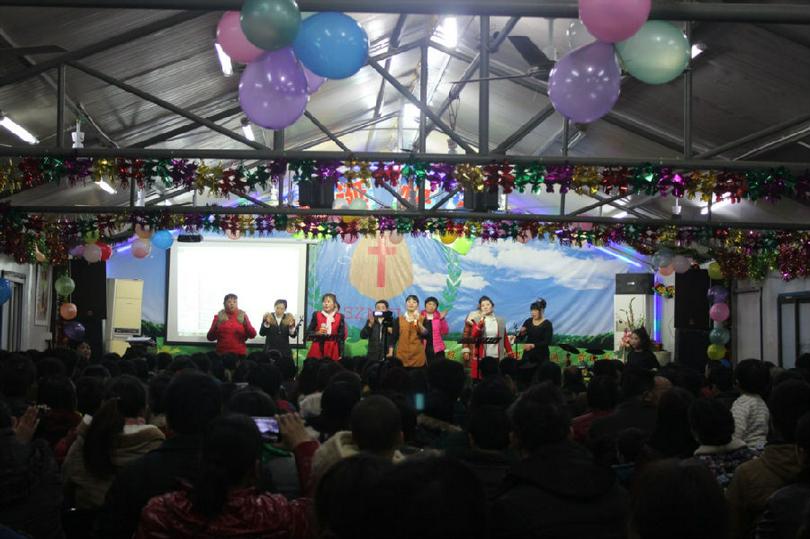The church of Pastor G is located in an urban area of the Yangtze region with a regular Sunday attendance of around 100. The congregation is mainly middle-aged and elderly. While there are a few locals, most of them are from Anhui, Henan, Shandong, and Jiangsu provinces. Considering church transformation a decade ago, Pastor G holds that the church should cultivate more young members from the beginning, using the evangelism model of inviting friends and families to the church.
To fit in better with society and the younger generation, the church has made numerous adjustments and reforms in evangelistic methods. "We have many ways of sharing our faith, including hosting evangelistic meetings and Gospel tea parties... What is a Gospel tea party? It's an activity where each believer brings a newcomer. If there are fifty Christians who can bring one new person each, then it will be a tea party for one hundred people." During such parties, attendants share ideas, communicate with each other, and study the Bible. At the end of the parties some new people pray the sinners' prayer.
"The number of believers will be on the rise through the parties." In addition, the church organizes the congregation to distribute Gospel tracts in communities and in the street on the weekends. "Pastors need to lead members to be active in evangelization and to pray for God to hold newcomers. Meanwhile, the church should follow up with them regularly."
Difficulties: reverse migration and differences in age
Migrant-worker churches have congregations of mostly middle-aged and seniors. His church for migrant workers has started to focus on fostering the younger generation, resulting in a "reverse migration flow."
Similarly to other urban migrant-worker churches in the Yangtze region, it faces the greatest challenge of demolition. Once the houses in the areas around the city are demolished and children can't attend school, migrant workers may go to a second or third-tier city where their children can receive a better education. He says that rarely do Christian migrant workers want to leave first tier cities to farm back home unless they are above 60, incapable of working any longer.
The question then arises of how to nurture those who leave first-tier cities for second and third-tier cities, and even county towns? He states that Christians can go to brother churches if possible.
He confesses that the church can't resist reverse migration, just like rural people migrated to cities in the 1970s. However, reverse migration results in a decrease in church membership, which brings a challenge. The church should make efforts in evangelism ministries to prevent a large decline in the number of the congregation during reverse migration flow.
Reverse migration has been steadily underway in recent years rather than bursting out all at once. Therefore, from his perspective, the majority of the congregation should be young people rather than migrant workers, middle-aged, or elderly people.
G adds that the transformation of his church started in improving the overall quality of the members. Those who remained in the church turned to be more elites. It also works on young people, urbanizing and modernizing worship and praise bands to keep abreast of the times. He also mentioned that a phenomenon of disparate ages will appear in some churches if they shift focus from middle-aged and elderly toward young people, but it didn't happen in his church.
The reason is that the congregation gathers together for Sunday services, while seniors and young people are separate in small groups otherwise. The generation gap certainly exists, but it needs to be gradually coordinated.
Future challenges and marriage issues
The future overall challenges migrant-worker churches face are locations and facilities. They have to pay high rent, while one more important is to offer good worship, praise and sermons. Messages from the pulpit should be renewed with the social development.
Many factors contribute to a good church. "It's like a well-run company that has a boss with good ideas and strategies as well as a diligent and reliable staff..."
In the end, Pastor G talked about the marriage issue among those young Christian migrant workers. Most of them get married to persons in the same church. For example, the church recommends a brother who matches the spiritual maturity of a sister, based on her faith and criteria for her future husband. What's more, they have to communicate with each other to see whether they are the right one assigned by God.
Translated by Karen Luo











